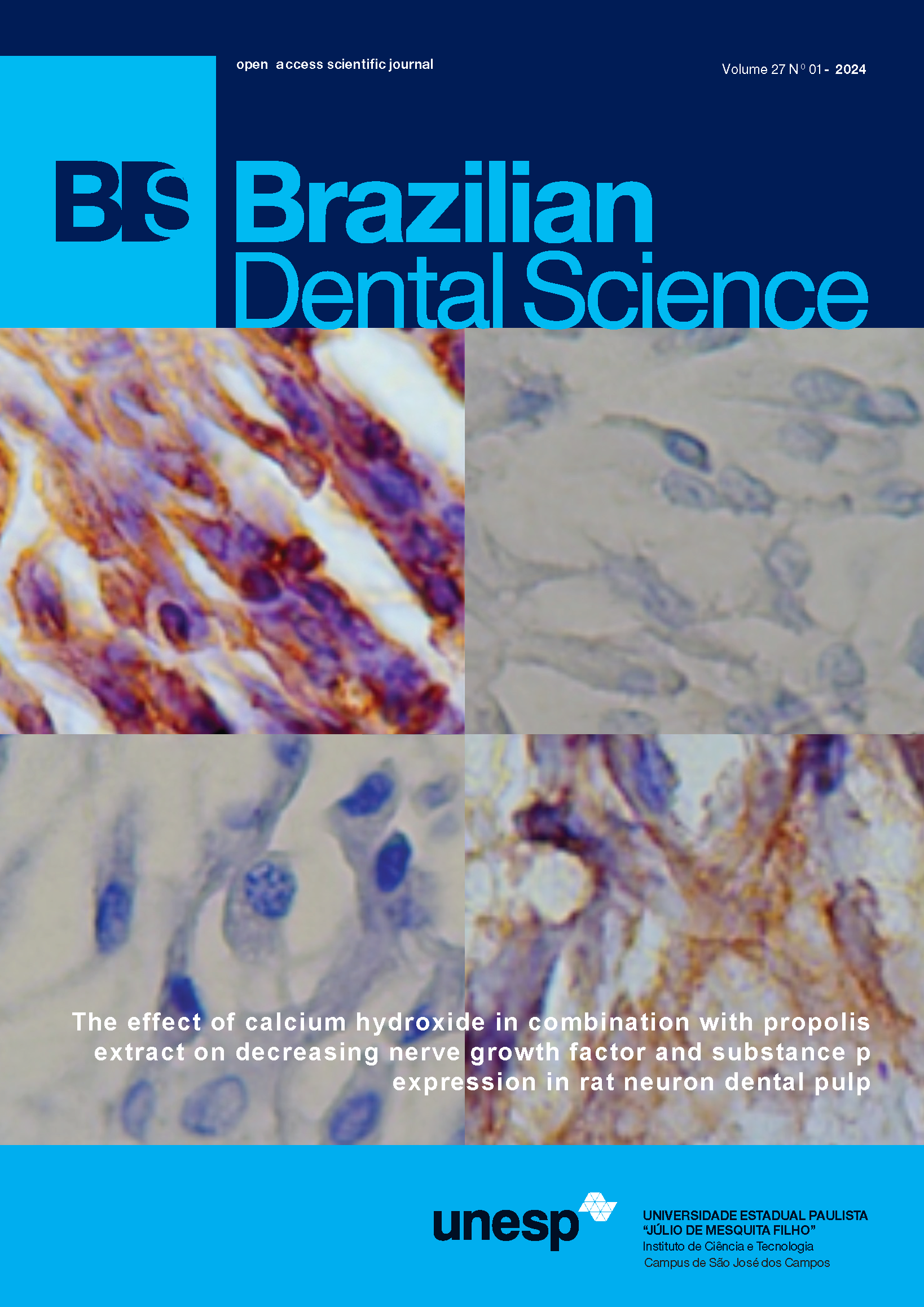Durability of bond strength between titanium alloy and resin cement
DOI:
https://doi.org/10.14295/bds.2008.v11i1.173Abstract
The aim of this study was to evaluate the effect of thermocycling on the bond strength between resin cement and titanium alloy with silica coating. Six titanium alloy blocks (Rematitan, Dentaurum) were cast with dimensions of 5x6x6mm. One of the faces measuring 5x6mm of each titanium alloy block was etched with the CoJet System (3M ESPE – silica coating) and luted with Panavia F (Kuraray) to another identical block made from composite resin Z100 (3M ESPE) under a constant 750g load. The six samples formed by titanium alloy, cement and composite resin were split up in a mechanical lathe and 30 samples measuring 10x1x1mm were achieved, with an adhesive surface area of 1mm2 ± 0.2mm2. The samples were divided into 2 groups (n=15): G1 (group 1) – stored for 1 day in distilled water at 37°C; G2 (group 2) – thermocycling for a total of 2,700 cycles (5°C – 55°C, dwell time: 30s). The microtensile test was accomplished in a universal testing machine (EMIC) at a crosshead speed of 1.0 mm/min. Means and standard deviations of bond strengths (MPa) were 44.50±8.41 for G1 and 38.03±7.63 for G2. Data were analyzed using the unpaired Student t test (p<0.05). There was a statistically significant difference between groups G1 and G2 (t=2.206; df=28; p=0.036). The bond strength values between the titanium alloy surface and the resin cement decreased after thermocycling.




